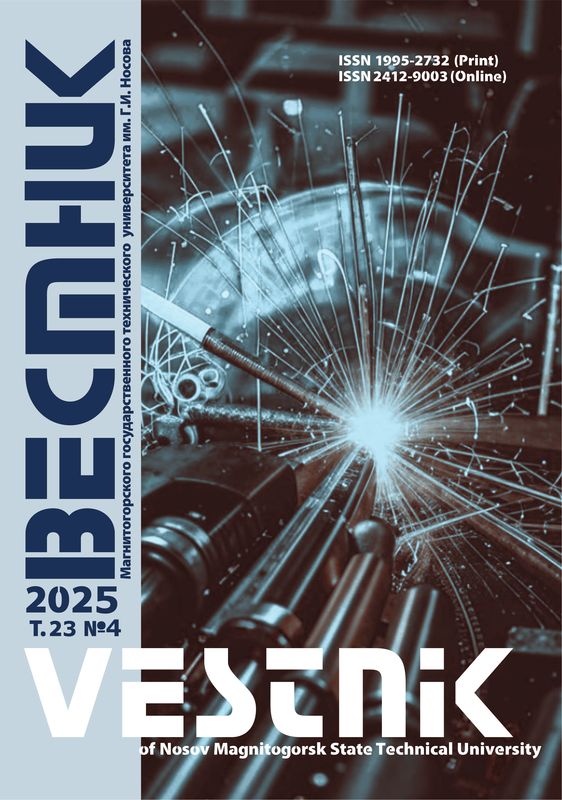DOI: 10.18503/1995-2732-2023-21-1-109-117
Abstract
In recent decades, there have been significant changes in the field of engineering, which are fixed by leading engineering schools, as well as in the requirements of industrial industries for specialists. In addition, complexity of social development, a sharp technological breakthrough in social relations transforms the status of engineering in the foundations of technosphere. Hence, the field of research related to the state of technical and engineering sciences takes on increasing importance and, consequently, there is a growing need for the analysis of the specific character of modern engineering. Engineering retains its conventional status of embedding human wishes into the world of habitation and, at the same time, increasingly claims priorities in the field of social determinants. This study tries to determine sociotechnical consistency and universality of modern engineering through a comprehensive analysis of the new social phenomenon of Homo Technology. Addressing the existing interdisciplinary experience of theoretical research in the field of this issue necessarily determines the choice of a structural-genetic approach as the leading methodological basis for the analysis. When reaching the described objectives, the author used conventional methods of scientific research of the empirical and theoretical level combined with methods of philosophical reflection, in particular, based on phenomenological schools. An attempt is made to systematize the basic qualities of the Homo Technology engineer. The paper evidently reveals the sociotechnical nature of engineering in the universality of its social functions. Special attention is paid to risks in the process of training a new type of engineer, including the proposed ways to minimize them. The results of this study can be used in social practice when analyzing the state of human capital and forecasting the main strategies for its development. Taking into account the main characteristics of the status of modern engineering can contribute to improving competitiveness of the Russian engineering school.
Keywords
engineering, society, Homo Technology, culture, science, skills, technosphere, innovative development, design thinking, technological entrepreneurship, sociotechnical consistency
For citation
Zhilina V.A. Sociotechnical Consistency and Universality of Modern Engineering: Homo Technology. Vestnik Magnitogorskogo Gosudarstvennogo Tekhnicheskogo Universiteta im. G.I. Nosova [Vestnik of Nosov Magnitogorsk State Technical University]. 2023, vol. 21, no. 1, pp. 109-117. https://doi.org/10.18503/1995-2732-2023-21-1-109-117
1. Antokhina Yu.A., Prokhorova V.B. Engineering school of the 21st century. Akkreditatsiya v obrazovanii [Accreditation in Education]. 2016;(4(88)):18-21. (In Russ.)
2. Zhilina V.A. Ontological framework for a cyclic nature of development of the human spirit. Vestnik Chelyabinskogo gosudarstvennogo universiteta [Bulletin of Chelyabinsk State University]. 2009;(11(149)):28-34. (In Russ.)
3. Pinchuk A.Yu. Development of the Russian engineering school as a form of an efficient response to grand challenges. TsITISE [CITISE (Center of Innovative Technologies and Social Expertise)]. 2021;(1(27)):425-435. (In Russ.)
4. Alabi M.O., de Beer D.J., Wichers H., Kloppers C.P. Framework for effective additive manufacturing education: a case study of South African universities. Rapid Prototyp J. 2019;26:801-826. https://doi.org/10.1108/ RPJ-02-2019-0041
5. Berselli G., Bilancia P., Luzi L. Project-based learning of advanced CAD/CAE tools in engineering education. Int J Interact Des Manuf. 2020;14:1071-1083. https://doi.org/10.1007/s12008-020-00687-4
6. Bocong L. The rise of philosophy of engineering in the East and the West. Edited by Poel I., Goldberg D. Philosophy and Engineering: Philosophy of Engineering and Technology. 2009;2. Springer, Dordrecht. https://doi.org/10.1007/978-90-481-2804-4_3
7. Carroll M.P. Shoot for the moon! The mentors and the middle schoolers explore the intersection of design thinking and STEM. J Pre-Coll Eng Educ Res (J-PEER). 2014;4(1):14-30.
8. CDIO. http://cdio.org/about. Accessed on June 20, 2020.
9. Chong S., Pan G.T., Chin J., Show P.L., Yang T.C.K., Huang C.M. Integration of 3D printing and Industry 4.0 into engineering teaching. Sustainability. 2018;10(11):3960. https://doi.org/10.3390/su10113960
10. Davis M. Distinguishing architects from engineers: A pilot study in differences between engineers and other technologists. Edited by Poel I., Goldberg D. Philosophy and Engineering: Philosophy of Engineering and Technology. 2009;2. Springer, Dordrecht. https://doi.org/ 10.1007/978-90-481-2804-4_2
11. DSchool. An introduction to design thinking: Process guide. https://dschool-old.stanford.edu/sandbox/groups/ designresources/wiki/36873/attachments/74b3d/Mode GuideBOOTCAMP2010L.pdf. Accessed on May 24, 2020.
12. Kamp A. Engineering education in a rapidly changing world. Rethinking the vision for higher engineering education, 2nd. 2016.
13. Loosman I., Nickel P.J. Towards a design toolkit of informed consent models across fields: A systematic review. Science and Engineering Ethics. 2022;28(5):1-19. https://doi.org/ 10.1007/s11948-022-00398-x
14. Motyl B., Filippi S. Trends in engineering education for additive manufacturing in the industry 4.0 era: a systematic literature review. Int J Interact Des Manuf. 2021;15:103-106. https://doi.org/10.1007/s12008-020- 00733-1
15. Sörensen A., Mitra R., Hulthén E. et al. Bringing the entrepreneurial mindset into mining engineering education. Mining, Metallurgy & Exploration. 2022;39:1333-1344. https://doi.org/10.1007/s42461-022-00620-1
16. Zhilina V.A., Kuznetsova N.V., Akhmetzyanova M.P., Zhilina E.A. Modern characteristics and mechanisms of identification of social subject. European Proceedings of Social and Behavioural Sciences EpSBS. International Scientific Conference dedicated to the 80th anniversary of Turkayev Hassan Vakhitovich. Kh. I. Ibragimov Complex Research Institute. 2020;2742-2749.












